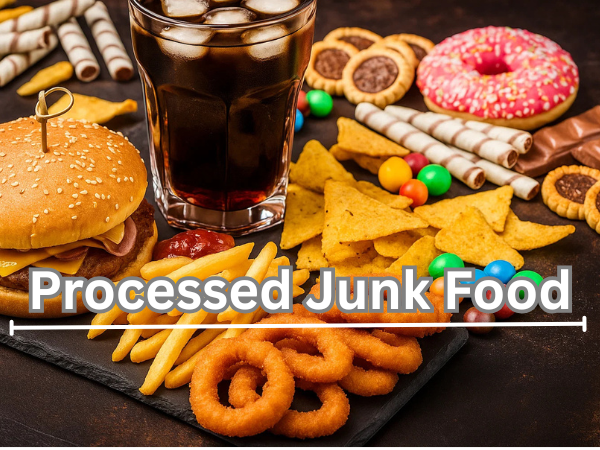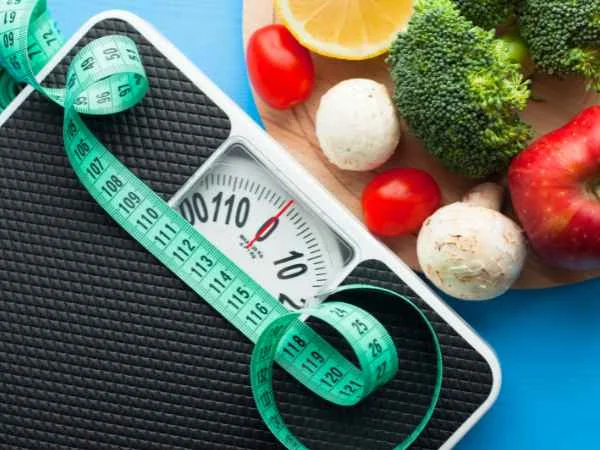We have learned to avoid sugar, cut fats, and exercise daily so our hearts are well guarded. But in 2025, there’s a more palpable and diabolical threat on our plates—ultra-processed food. We all somewhere know that ultra processed foods Bad for Heart Health . However, even when you know you’re eating “healthy” food, you have a good chance of unknowingly ingesting chemicals that secretly harm your cardiovascular system. More than 60% of the daily city diet’s total calories come from ultra-processed foods, and they have been discovered to confer a 24% increased risk of heart disease, as per a 2024 Harvard Public Health study. More despicable is the way that such foods creep into our diets. Moreover by camouflaging themselves in the form of breakfast cereals’ packaging, instant packets, energy bars, and even flavored yogurt.

In this blog we will outline the top 4 ultra-processed foods for heart health, based on the latest research. We’ll also show you how to identify ultra processed foods, what their real effect is, and give you smart swaps to save your heart.
What Exactly Are Ultra-Processed Foods?
Before diving into the harmful foods, it’s crucial to understand what qualifies as ultra-processed. These are foods that have undergone multiple industrial processes, containing ingredients you’d never use at home—emulsifiers, stabilizers, colorings, artificial sweeteners, and synthetic preservatives. A 2023 review published in BMJ revealed that ultra processed foods are linked to 32 health problems, including heart disease, diabetes, depression, and even cognitive decline. This shows how and why ultra processed foods bad for heart health.
Additionally, knowing what ultra processed food is, is reading labels on food very closely. When you notice words that don’t appear to sound like English, words you’ve never even seen or heard of, this is a warning sign. Ultra-processed foods can even be “healthy” or “organic.” This sneaky poison turns ultra processed foods bad for heart health without your knowledge.
1. Breakfast Cereals – The Imposter Health Food
Firstly, Breakfast cereals are commonly thought to be a healthy morning breakfast—but they are nothing short of candy-like, sweetened up, ultra-processed foods in the overwhelming majority of cases. The leading brands sprinkle added sugars, corn syrup, artificial sweeteners, and even BHT (a carcinogen found in animals) on their flakes. A 2024 French cohort study in over 100,000 adults in the NutriNet-Santé database stated that adults with over 15% of total daily calories from ultra processed food had 25% higher odds of having cardiovascular diseases after adjustment for smoking, physical activity, and BMI.
Therefore, this puts cereals at the top of the list of ultra processed foods harmful to heart health. Their worst killer trait is their “health halo” of “low fat” or “high fiber” labels hiding sugar and additives. Additionally, if you are serious about reducing ultra processed food intake and cardiovascular disease risk, replace steel-cut oats or poha with vegetables, which are minimally processed and heart healthy.
2. Pack Soups and Ready-to-Eat Noodles – Convenience at a Cost
Secondly, Noodles, soups in a cup, and ready-to-eat packets are the guardians of the fast lifestyle. They are chemical concoctions presenting themselves as comfort food. They contain MSG (monosodium glutamate), excess sodium, palm oil, and artificial flavor enhancers. Each one a red mark for heart health. A 2023 World Heart Federation meta-analysis estimated that excess sodium from ultra-processed foods is responsible for nearly 1 out of 5 global cardiovascular disease-attributable deaths. Moreover, these figures are not even ones we can overlook—ultra-processed, heart-dead foods are not merely garbage snacks, but convenience meals we consume on a daily basis without even giving them a second thought.
When you track your ultra-processed food and cardiovascular disease intake, start by removing these convenience meals. Swap flavored yogurts with whole wheat pasta and tomato basil sauce or homemade vegetable soup. These are alternatives that constrain your consumption of ultra processed foods and are supportive of long-term cardiovascular health.
3. Flavored Yogurts – Sugar in Disguise
Additionally, Flavor yogurts or fruit yogurts are commonly marketed as gut-friendly and protein-rich products but are actually mostly sugar bombs with artificial flavor, stabilizers, and coloring. Some even contain high-fructose corn syrup, which was discovered to have a direct link with insulin resistance and inflammation in the cardiovascular system. Flavored yogurts have as much added sugar as a can of soda, especially when marketed to women and children in “low-fat” containers, a 2023 American Heart Association report said. Their added sugars induce chronic inflammation, which has turned out to be a pro-atherosclerotic (causing of widening of the arteries).
Moreover, to cut your ultra processed food consumption and cardiovascular disease threat, swap out your breakfast cereal for plain Greek yogurt with fresh fruit and a pinch of cinnamon sprinkled on top. Lastly, this switcheroo will make ultra processed food stand out big time from your “healthy” snack drawer.
4. Processed Meats – A Straight Shot to Heart Disease
Processed foods such as salami, bacon, ham, and sausages are heavily processed and contain additives. Such as sodium nitrate, artificial smoke flavor, and saturated fat. Pro-inflammatory compounds increase bad cholesterol (LDL)—a poisonous cocktail for cardiovascular health. A 2024 Circulation study tracked 200,000 adults over 10 years and concluded that two portions per week of processed meat increased heart disease by 21%. Processed meats are an ultra processed food poster child for lousy heart health. They’re routinely added to everyday meals. Baked onto pizzas, filled into sandwiches, wrapped up in wraps. So they’re miserably convenient to overindulge in. To reduce your ultra processed food intake and cardiovascular disease risk, replace deli meats with grilled tofu, hard-boiled egg whites, or lentil patties. These are not only reducing your risk factor, but they are packed with heart-healthy fiber and plant nutrients.
Bonus: Ultra Processed Foods Linked to 32 Health Issues
It’s not your heart alone that’s the risk. In 2023, BMJ researchers published a systematic review called “Ultra-Processed Food Consumption and Human Health Outcomes”. They showed ultra processed foods are associated with 32 health outcomes like:
- High blood pressure
- Type 2 diabetes
- Depression
- Heavy People
- Colorectal cancer
This research confirms the way in which ultra processed foods bad for heart health are only the tip of the iceberg. Once you learn how to recognize ultra processed foods, you will see how ubiquitous they are. And how unhealthy they are for you.
How to Know Ultra-Processed Foods: The Label Trick?
If the ingredient list is something that reads like a chemistry textbook, then you are looking at an ultra-processed food. And these are the ways in which you can detect them:
- More than 5 ingredients
- Maltodextrin, carrageenan, modified starch, artificial sweeteners, and sodium nitrate are some of them
- “Fat-free”, “diet”, “fortified”, or “zero sugar” are some of the health claims
- Multigrain bread and even protein bars can be ultra-processed. To take the first step to help eliminate heart-killing ultra-processed food, start by cleaning out your cupboard.
- Get in the habit: any packaged food that you buy has to pass the 3-ingredient test. If it contains ingredients you can’t read or won’t serve at home, don’t buy it.
Baila Moves to Keep Your Heart Safe
These are few easy alternatives to reduce ultra processed foods and cardiovascular disease risk:
Ultra-Processed Food Healthy Alternative
Flavored yogurt Plain curd + fruit
Instant noodles Whole wheat or millet noodles
Cereal Overnight soaked oats or poha
Protein bar Handful of soaked nuts
Packaged soup Homemade lentil or vegetable soup
Processed meat Grilled chickpeas or tofu
These alternatives not only restrict ultra processed foods detrimental to cardiac health. But also provide food habit towards sustainability for maximum long-term health.
What are the 10 most ultra-processed foods?
- Breakfast cereals, instant noodles, soups packaged ready to eat, flavoring-added yogurts, frozen pizzas, sweetened beverages, packaged potato chips, processed meats, protein bars, and candies.
Which ones are ultra-processed foods?
– Anything with additives, added flavoring, preservatives, emulsifiers, and artificial colorings that you would never stock in a home kitchen—those are ultra-processed.
Do ultra-processed foods cause heart disease?
– Yes. New findings between 2023–2024 guarantee that ultra processed food is toxic to cardiovascular health. Causing inflammation, increased cholesterol levels, hypertension, and metabolic syndrome, leading to cardiovascular disease.
Conclusion: What You Can Do Starting Today?
Lastly, it only requires knowing about a trick for recognizing ultra processed foods to begin safeguarding your heart. Step two? Swapping them out for whole, minimally processed food. Real food your body recognizes and can metabolize with not even a whimper. The science is piling up: from breakfast cereals to so-called “healthy” snacks. However, Ultra processed foods harm cardiovascular health and are tied to an entire catalog of disease. Not just cardiovascular disease. If you’re still reaching for the flavored yogurt because it’s good for you, back up. Therefore, read the label. Ask yourself: Would my grandma be familiar with these ingredients? Start today by substituting one ultra-processed food in your cupboard. That’s one step on the path to a healthy heart.


